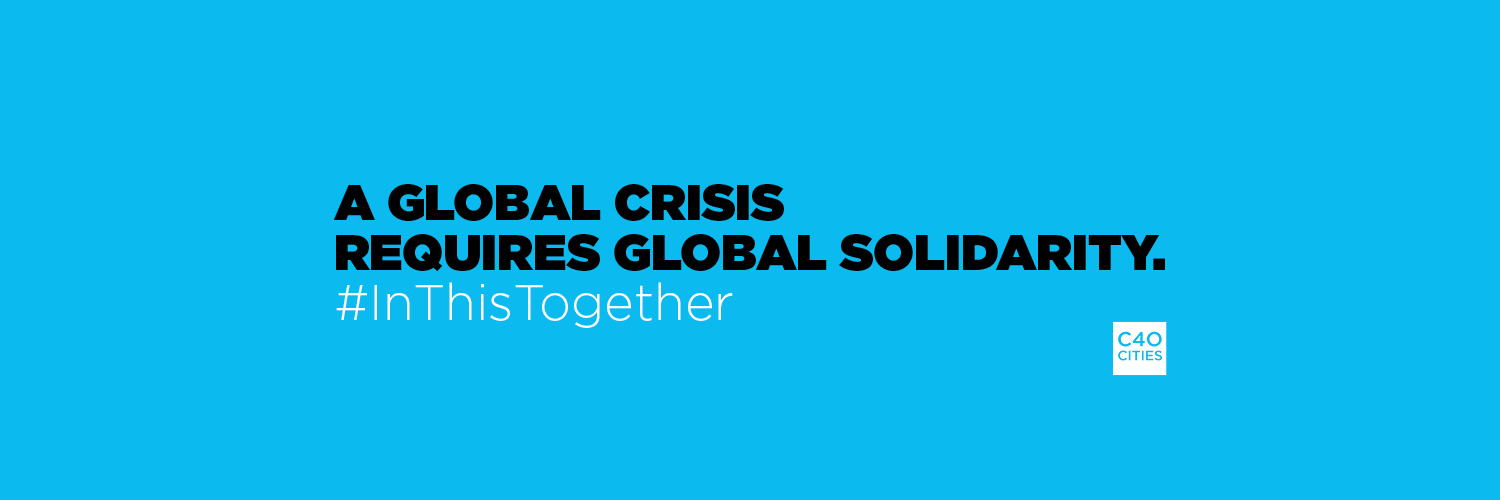- Details
- Written by Silvia G. Golan

The global reaction to Covid-19 has forced changes in all aspects of life, from diplomacy to education. But every challenge is an opportunity. On June 29, 2020, as the academic year ground to a halt for most elementary school students in Israel, some young leaders were practicing their diplomatic schools in a historic Zoom conference. The Young Ambassadors ZoomMUN, on Monday morning June 29, marked the first ever online MUN conference for elementary school students in Israeli history, featuring 15 intrepid young leaders from the Young Ambassador leadership program in Petah Tiqva.
The conference theme was “Racism: Global and Local Challenges and Solutions”. Representing countries such as Australia, China, Israel, New Zealand, and Turkey, the young delegates addressed various forms of racism, xenophobia and discrimination impacting communities around the world, with their socio-economic and personal impacts.
After Mrs. Rachel Amrani, the Director of the Young Ambassadors school gave opening remarks, the delegates began with their own opening statements. Several hours of moderated and unmoderated caucuses followed, until the students had a written text to present which included a number of concrete policy suggestions for how to effectively address the challenges of racism.
After an intense three hours of fruitful debate, the delegates voted on and passed these suggestions as their committee resolution. The final resolution included components calling for educational games for youth, workshops for adults, increased gun control, and stronger deterrence against racism. Koren Polak, representing Belgium, and Liya Roitman, representing India, were chosen Outstanding Delegates, and Rotem Getraide, representing Bulgaria, received the Best Delegate award.
Alma Plot (India), a fifth-grader from Bar Lev elementary school told Diplomacy.co.il that that conference was “very interesting, and I learned many new things”, and that she enjoyed interacting with her peers. Yonatan Tavor (United Kingdom) added that he had especially enjoyed the discourse with students with different perspectives.
Director of the School of Young Ambassadors Mrs. Rachel Amani explained that the MUN project is just one pillar of the diverse activities of the Municipality of Petah Tikva for outstanding students. It reflects the aspiration of the Municipality of Petah Tikva for excellence in education, and to offer a global, critical-reasoning focused education paradigm to broaden the horizons of tomorrow's leaders.
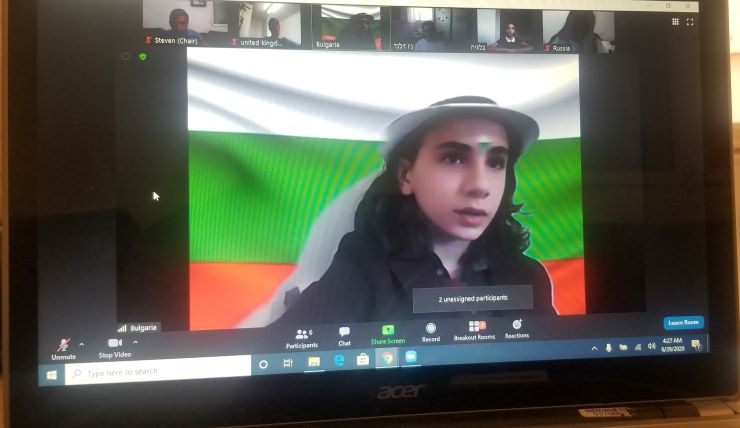
During the year the Chen School for Young Ambassadors offers a wide variety of frontal lectures, simulations and workshops for youth leadership and empowerment. In the past few months, many of these programs have been moved online to accommodate Ministry of Health requirements.
This summer the Young Ambassadors school will be offering a special leadership module “diplomatic summer camp” for grades 5-7, including courses in international relations, leadership, civics, and global problem-solving. For more information on this or the other youth empowerment programs, please contact the Young Ambassadors school at: 03-6137554.
- Details
- Written by Spokesperson of the President's Office
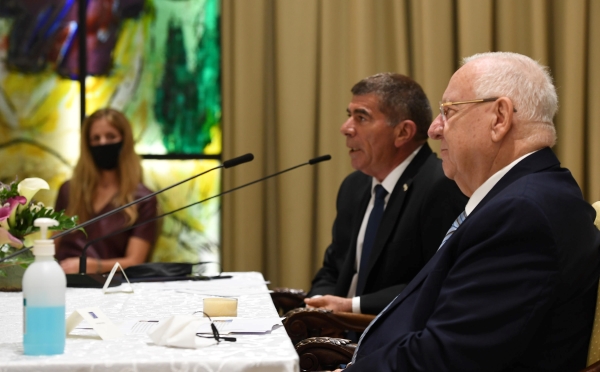
President Rivlin:
“We must stand together in fighting all forms of antisemitism. We must stand together in fighting all forms of racism.”
“We shall build new bridges of understanding and give practical expression to our values of עַרְבוּת הֲדָדִית and אַחְדוּת: mutual responsibility and unity, among the entire Jewish family.”
President Reuven (Ruvi) Rivlin spoke this evening, Wednesday 10 June / 18 Sivan, with leaders from Jewish communities across the United States by videoconference, talking about the challenges they face in light of the coronavirus pandemic. The conversation was held under the title of ‘a family gathering’.
The conversation was held in cooperation with the Ministry of Foreign Affairs and the participation of Foreign Minister Gabi Ashkenazi. Speaking from the American Jewish community were CEO of the Conference of Presidents of Major American Jewish Organizations William Daroff; President and CEO of Sinai Health System, Chicago Karen Teitelbaum; President of the Union for Reform Judaism Rabbi Rick Jacobs; President and CEO of The Jewish Federations of North America Eric Fingerhut; spokesperson for the Monsey Jewish community Rabbi Yisroel Kahan; Senior Rabbi of IKAR, Los Angeles Rabbi Sharon Brous; President of the Koret Foundation and Executive Director of Jewish Family and Children's Services of San Francisco Dr. Anita Friedman; Associate Director of Hillel at Emory University, Atlanta Lauren Blazofsky; and JCRC San Francisco Executive Director Tyler Gregory.
“These are days when we are all facing the challenges of the coronavirus and, more than ever, it is most important to deepen the bonds between us. it is time for us to be there for each other,” said the president at the beginning of his remarks. “As I enter my final year as president, I reflect on my first days in office. I will be honest. I have gone through my own journey in terms of understanding the American Jewish community, with all of its different streams and today I am happy to have had the opportunity to gain a deeper understanding of American Jewish life.”
The president spoke of the many challenges, in the coming period: the challenge of providing Jewish education when Jewish schools and camps are closed, the challenge of connecting young people to Israel when Taglit, Masa and other programs are on hold, the challenge of combating antisemitism which he said he feared will only grow worse in the coming year. “We must stand together in fighting all forms of antisemitism. We must stand together in fighting all forms of racism. Antisemitism and racism are two sides of the same coin, and we must fight them wherever they appear,” he said.
“We must strive to build a new dialogue between us,” said the president. “In 1958, Ben Gurion faced the difficult question: ‘Who is a Jew?’. In order to answer that question, he turned to fifty leading Jewish thinkers, from all different backgrounds: in the United States, in Europe and in Israel, and asked for their opinions. Well, we still have not solved all of the difficult questions of the Jewish People. But this is the spirit of true dialogue, between Israel and the Diaspora that we need today.”
“Friends, I look forward to working with you, together with our Foreign Minister, Gabi Ashkenazi and Diaspora Affairs Minister Omer Yankelevich. We shall build new bridges of understanding and give practical expression to our values of עַרְבוּת הֲדָדִית and אַחְדוּת: mutual responsibility and unity, among the entire Jewish family.” At the end of his remarks, the president said, “For many years, the American Jewish community has stood with Israel. Today, we are here to hear you, and to see how we can help in any way. Because despite the distance between us, we feel closer today than ever before. Todah Rabah. God bless you.”
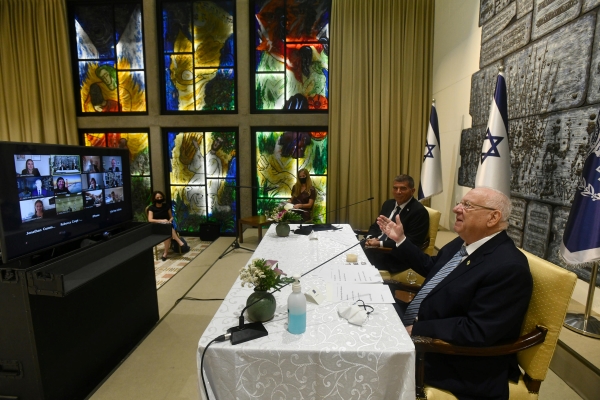
Minister of Foreign Affairs Gabi Ashkenazi MK: “Thank you, Mr. President, for the welcome initiative to hold this important meeting. The sense of mutual obligation between the State of Israel and the global Jewish community is a cornerstone of Israeli diplomacy around the world and for me personally as foreign minister. I salute the leaders of the American Jewish community for their leadership as they confront the coronavirus pandemic. We share the same fate and we must work together to get through this crisis.”
Photo credit: Mark Neyman (GPO)
- Details
- Written by MFA
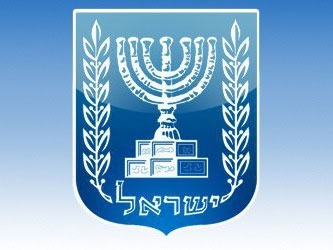
The 35th Government of Israel was sworn in during a special ceremony in the Knesset plenum, following more than a year of political deadlock, with three consecutive election cycles.
The State of Israel's 35th government was sworn in today (Sunday, 17 May 2020) during a special ceremony in the Knesset plenum, following more than a year of political deadlock, with three consecutive election cycles. The vote of confidence in the new government passed with 73 in favor and 46 against.
The special sitting was held in the presence of President Reuven Rivlin and Supreme Court President Esther Hayut.
According to the coalition agreement between the Likud and Blue and White parliamentary groups, MK Netanyahu will serve as prime minister for the first 18 months of the government's tenure, while MK Gantz will serve as alternate prime minister and defense minister, and then assume the premiership for the second half of the government's term, while MK Netanyahu will serve as alternate prime minister. PM Netanyahu said the date for MK Gantz assuming the premiership has been set for November 17, 2021.
President
Reuven Rivlin - President
Government Ministers
Prime Minister Benjamin Netanyahu
Alternate Prime Minister and Minister of Defense Benjamin Gantz
Minister for Cyber and National Digital Matters David Amsalem
Minister for Social Equality and Minorities Meirav Cohen
Minister for the Strengthening of Communities Orly Levi-Abekasis
Minister of Agriculture and Rural Development Alon Schuster
Minister of Communications Yoaz Hendel
Minister of Construction and Housing Yakov Litzman
Minister of Culture and Sport Yehiel Tropper
Minister in the Ministry of Defense Michael Biton
Minister of Diaspora Affairs Omer Yankelevitch
Minister of Education Yoav Gallant
Minister of Energy Yuval Steinitz
Minister of Environmental Protection Gila Gamliel
Minister of Finance Israel Katz
Minister of Foreign Affairs Gabi Ashkenazi
Minister of Health Yuli-Yoel Edelstein
Minister of Higher Education and Water Resources Zeev Elkin
Minister of Immigration and Absorption Penina Tamanu
Minister of Intelligence Eli Cohen
Minister of Jerusalem Affairs and Heritage Rafael Peretz
Minister of Justice Avi Nissenkorn
Minister of Labor and Social Welfare Itzik Shmuli
Minister of Public Security Amir Ohana
Minister of Regional Cooperation Gilad Erdan
Minister of Religious Affairs Yaakov Avitan
Minister of Science and Technology Izhar Shay
Minister of Settlement Tzipi Hotovely
Minister of Strategic Affairs Orit Farkash-Hacohen
Minister of the Economy Amir Peretz
Minister of the Interior Aryeh Machluf Deri
Minister of Tourism Asaf Zamir
Minister of Transportation Miri Regev
Minister Without Portfolio Tzachi Hanegbi
- Details
- Written by IAI
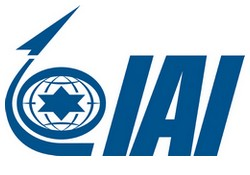
IAI has successfully completed an operational dual firing trial with the LORA Weapon System. The trial was held in the open sea to demonstrate LORA’s capabilities to an IAI customer
Israel Aerospace Industries (IAI) has completed a dual operational firing trial with LORA (Long-Range Artillery Weapon System), a precise ballistic strike missile. The trial was designed and performed under COVID-19 restrictions as part of IAI’s work plan, which includes demonstrating the capabilities of the advanced system to customers.
Held in the open sea, the trial included the launch of two long-range LORA missiles to a pre-defined hit point at sea. The complex trial included two scenarios to test and demonstrate LORA’s advanced capabilities. The first scenario involved a short-range launch to 90 km and the second to a long range of 400 km. In its ground version, the weapon system was deployed on a ship in the open sea to comply with the safety requirements of trials of this type. The missile was launched from an operational system that comprises a command trailer and a ground launcher. Under both scenarios, the missile was launched to its trajectory, navigated its course to the target, and hit it with utmost precision. Both the weapon system and the missile successfully met all of the trial’s objectives. Given the COVID-19 restrictions, the trial was executed with a portable trial field and a capsule team, which managed the trial remotely.
Developed by IAI’s MALAM division, LORA is a sea-to-ground and ground-to-ground system which comprises a long-range ballistic missile, a unique launcher, a command and control system, and a ground/marine support system. The LORA system provides ballistic assault capabilities for multiple ranges with a precision level of 10 meters CEP.
Boaz Levy, IAI's EVP and General Manager of the Systems, Missiles and Space Group, said: “The complex trial, performed under COVID-19 limitations, demonstrated the advanced capabilities of both IAI and LORA, our strategic missile system. The trial was executed according to a fully functional design, which tested the system’s maneuvering, strike, and precision, as well as technological developments and enhancements introduced by our engineers. Performing a trial with this level of complexity during these days is a testament to IAI’s unwavering commitment to our clients across the globe. The impressive results of the trial prove the system’s maturity and state-of-the-art capabilities.” Levy added, “I would like to thank Israel's Navy, Air force, and Israeli Ministry of Defense for the collaboration and assistance in this trial."
LORA was developed at IAI’s Systems, Missiles & Space Group. The Group boasts a long record in air-defense systems, such as the Arrow 2 and 3, the Barak 8, loitering missiles, and countless missile and satellite systems, such as observation satellites, nano-satellites, communication satellites (including Dror, the national communication satellite). The Group has also co-built the Beresheet spacecraft which traveled to the moon on its first mission. IAI is a national and global technological hub for air defense, radars, satellites, unmanned vehicles, civilian aviation, and cyber.
www.facebook.com/israelaerospaceindustries
www.instagram.com/iai.aerospace/
www.youtube.com/channel/UC7SZ9Bo1vxjWZcF8pt3VwFA
il.linkedin.com/company/iai---israel-aerospace-industries
Youtube credit IAI
- Details
- Written by Silvia G. Golan

